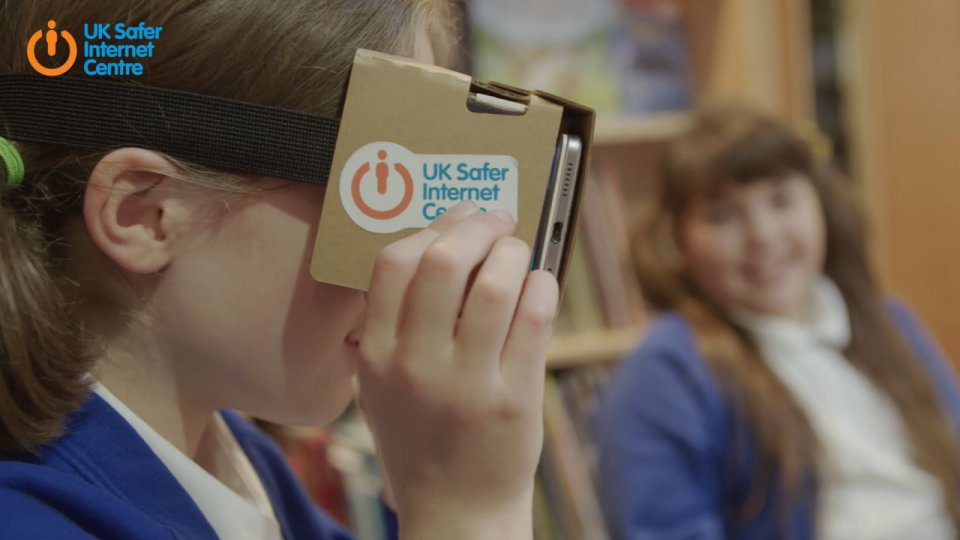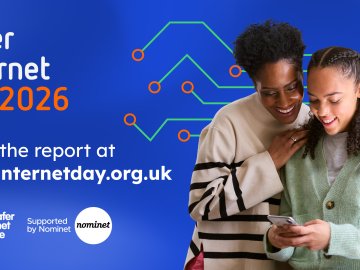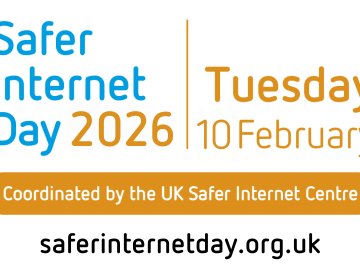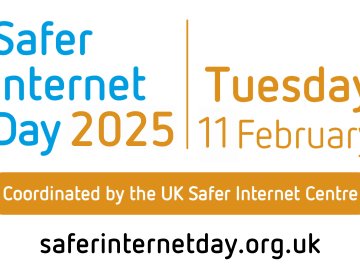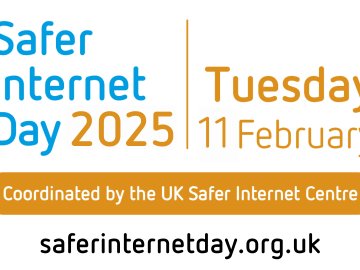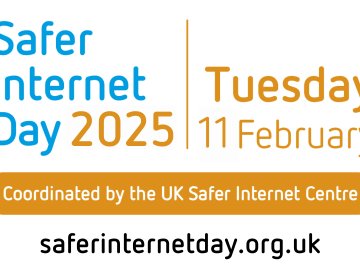Each year as part of our work in the UK Safer Internet Centre we create a series of films for Safer Internet Day to engage young people and help start conversations in classrooms across the country. SID TV complements the Safer Internet Day Education Packs for schools and can be streamed, downloaded and embedded for use in lessons, on school websites and anywhere else you would like to reach your audience.
The films have been made for children and young people from ages 3 to 18 and aim to enable discussions around the theme of consent in a digital world. A film has also been created to help parents and carers talk about consent online at home.
How to use SID TV in your lessons
If you have pupils aged 3-7, use the our film to start conversations with questions like ‘What do you like to do online?’, ‘What is the internet?’ and ‘What can it do?’ For this age group, we are framing consent around the phrase ‘is it ok to…?’ For example, is it ok to add a stranger to your online game, or share a picture? The aim is to get an understanding of active consent, and when to ask ‘is it ok…?’ They can also learn about how we can ask for consent; verbally, non-verbally, online and offline.
If you have pupils aged 7-11, our film and app continue discussions around the phrase ‘is it ok…?’ What does consent and what does permission look like, both online and offline? This will help young people to understand how the choices we make online can affect people’s feelings and to consider how they act towards others. Pupils can also question issues around big data: ‘What does the internet know about me?’, ‘Where is that information stored?’, ‘Does it matter?’, ‘How does it use the information?’ and ‘Can I revoke consent?’
If you have pupils aged 11-14, show them the music video [BC1] and discuss the effect it has had on your pupils. How were the topic and the messages conveyed through music and spoken word? The film contains key words from the lyrics which will help your pupils start thinking about online consent. You could ask questions like ‘What does consent mean?’ ‘Who owns online content like screenshots and images?’ and ‘What are we allowed to share?’ ‘Is there a difference between active and passive consent?’ ‘What does the internet know about you?’ ‘Where is that information stored?’ ‘Does it matter?’ ‘How is your information used?’
If you have pupils aged 14-18, watch our film for this age group with your class. The young people we spoke to considered some scenarios around sharing information and online consent, and had discussions about their responses. You could use the film to start these conversations in your group or class using the scenarios from the film or extended activities from the Education Pack. You could also take these discussions further by focusing on how information is used in wider society, with questions like ‘What was the internet created for?’ ‘What is data?’ ‘How do the choices we make online impact on the bigger picture?’ ‘What personal data is the most valuable, the most private or the most unimportant?’ ‘If didn’t share any data at all, what might happen?’
We want Safer Internet Day to empower young people to take control of their online lives. Consent, data and online privacy need not be complex topics to broach. Use these videos along with our other Safer Internet Day educational resources to allow children and young people to consider how consent and data sharing works in an online context.

